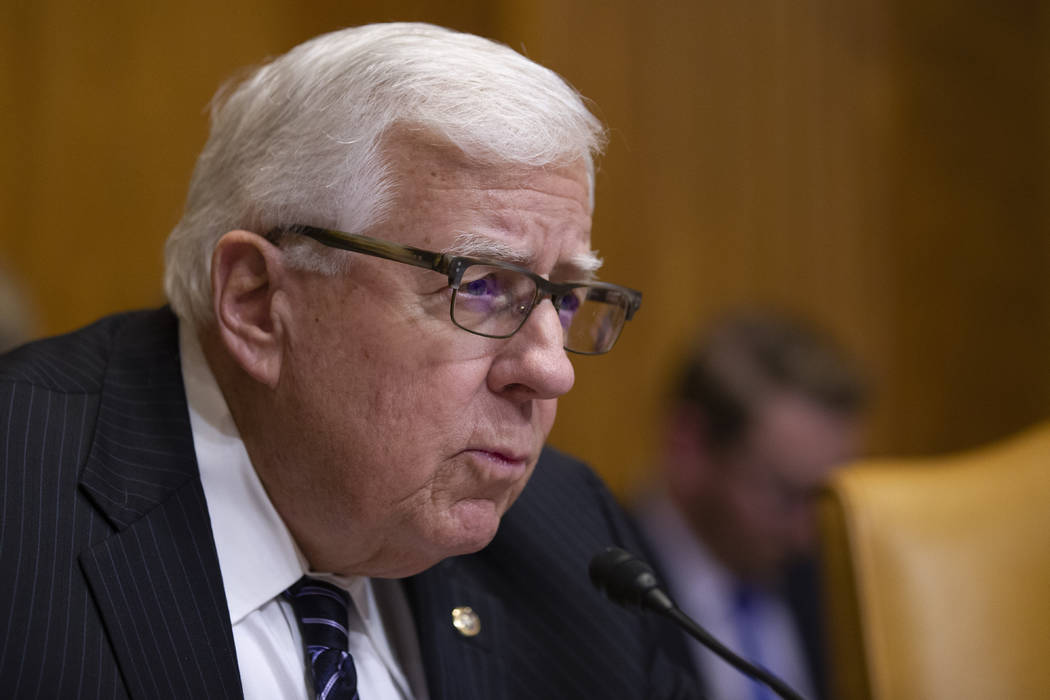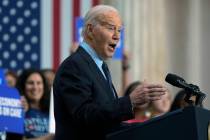EDITORIAL: Enzi’s modest budget reforms worth of support
It may not seem like it, but at least one member of Congress is working to reign in ballooning federal deficits.
This week, the Senate Budget Committee held hearings on a proposed spending plan offered by Sen. Mike Enzi, R-Wyo., who chairs the committee. His modest proposal would lower the yearly deficit from $903 billion in 2020 to $748 billion in 2024. It would slow the growth of discretionary spending by $551 billion. The proposal doesn’t touch Social Security or Medicare.
Given the federal government’s appetite for spending, this isn’t a radical improvement. In a country awake to fiscal realities, Sen. Enzi’s proposal might be scoffed at for its timidity. After all, Congress will spend $25.4 trillion over those five years. The Heritage Foundation found that debt held by the public will increase by $3.6 trillion even if Sen. Enzi’s plan becomes law.
But the senator’s proposal is moderate by intention. That’s because any talk of budget “cuts” in Washington immediately brings out the special interest groups and special pleaders howling that even minimal spending restraint is heartless and warning that such reforms will result in dying children and force the poor and elderly to subsist on cat food.
Right on cue, Government Executive cobbled together a story on Sen. Enzi’s plan under the headline “Senate GOP proposed drastic budget cuts.” It wasn’t until midway through that the article explained the details of the actual proposal.
“As the proposal currently stands, non-defense agencies would receive $542 billion in fiscal 2020,” the piece explained. “That would climb to $555 billion in fiscal 2021 but stay flat for the next three years. Absent a budget deal, Enzi also proposed a 10 percent cut to defense spending next year.”
At least Sen. Enzi has offered a blueprint to modestly control deficits. Even with the guarantee of favorable press coverage, Democrats appear poised to take a pass. On Wednesday, The Washington Post reported that House Democrats are divided between liberals who want to spend more and moderates who don’t want to vote for a tax increase. Thus, they likely won’t craft any budget at all.
That’s a far cry from the mantra — “Show me your values. Show me your budget” — that House Speaker Nancy Pelosi repeated as minority leader. Clearly, Speaker Pelosi values keeping her grip on power more than solving the nation’s fiscal challenges.
Writing in The Fiscal Times, Sen. Enzi acknowledges that it’s “hard to believe that a divided Congress can execute change.” But he contends his budget “is a responsible first step toward addressing our country’s pressing fiscal challenges.”
He’s correct. Sen. Enzi’s proposal shouldn’t be controversial. It should be a starting point for discussing the substantial spending reforms the federal government sorely needs to keep the country from going over a looming fiscal cliff.






















